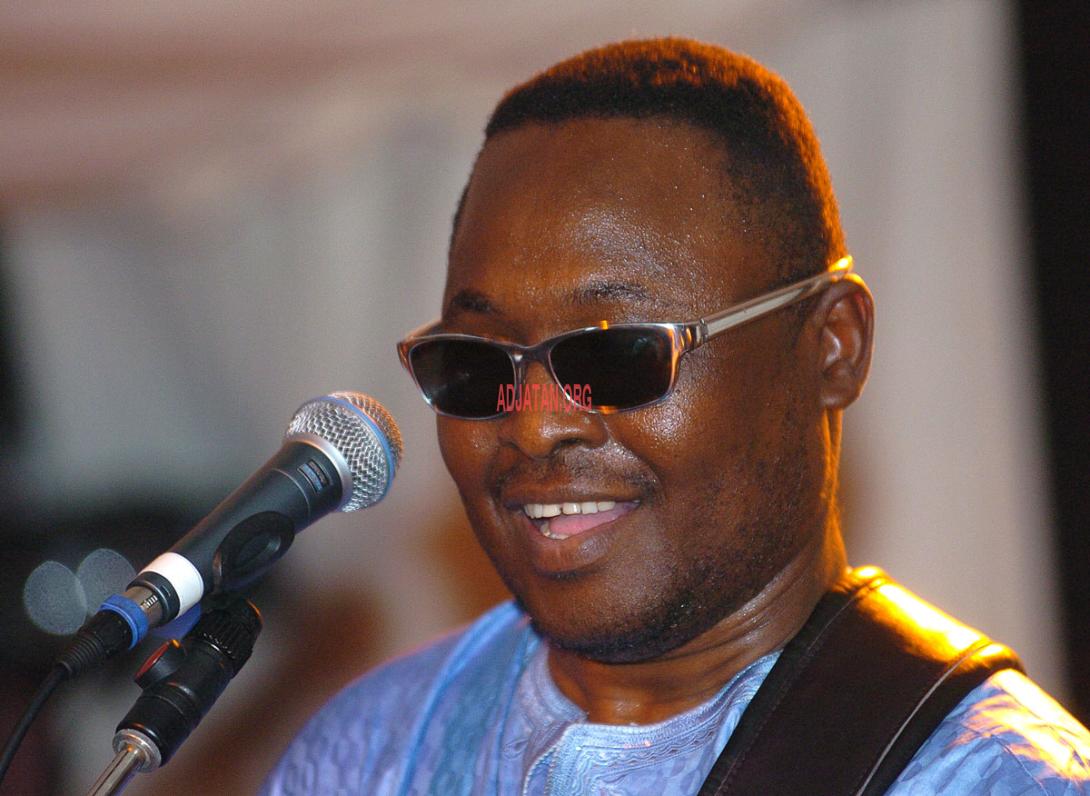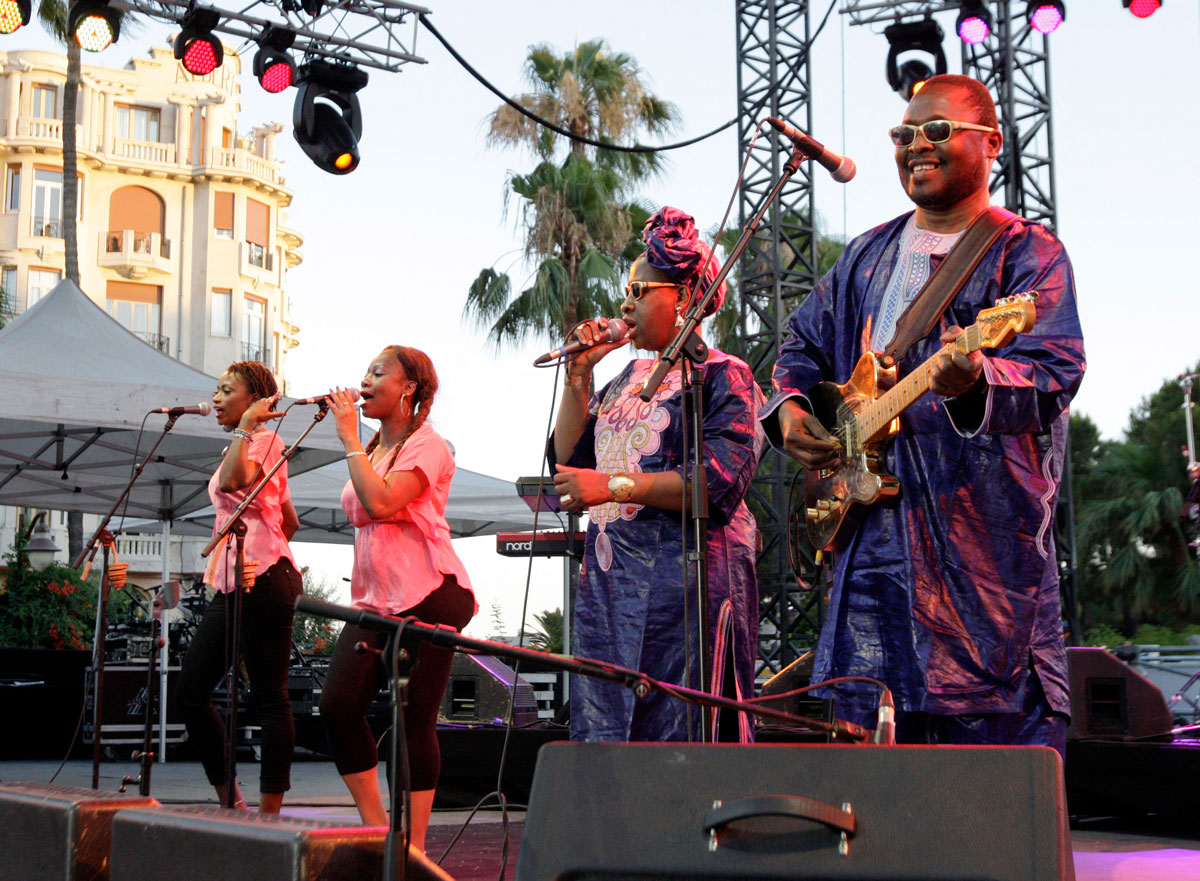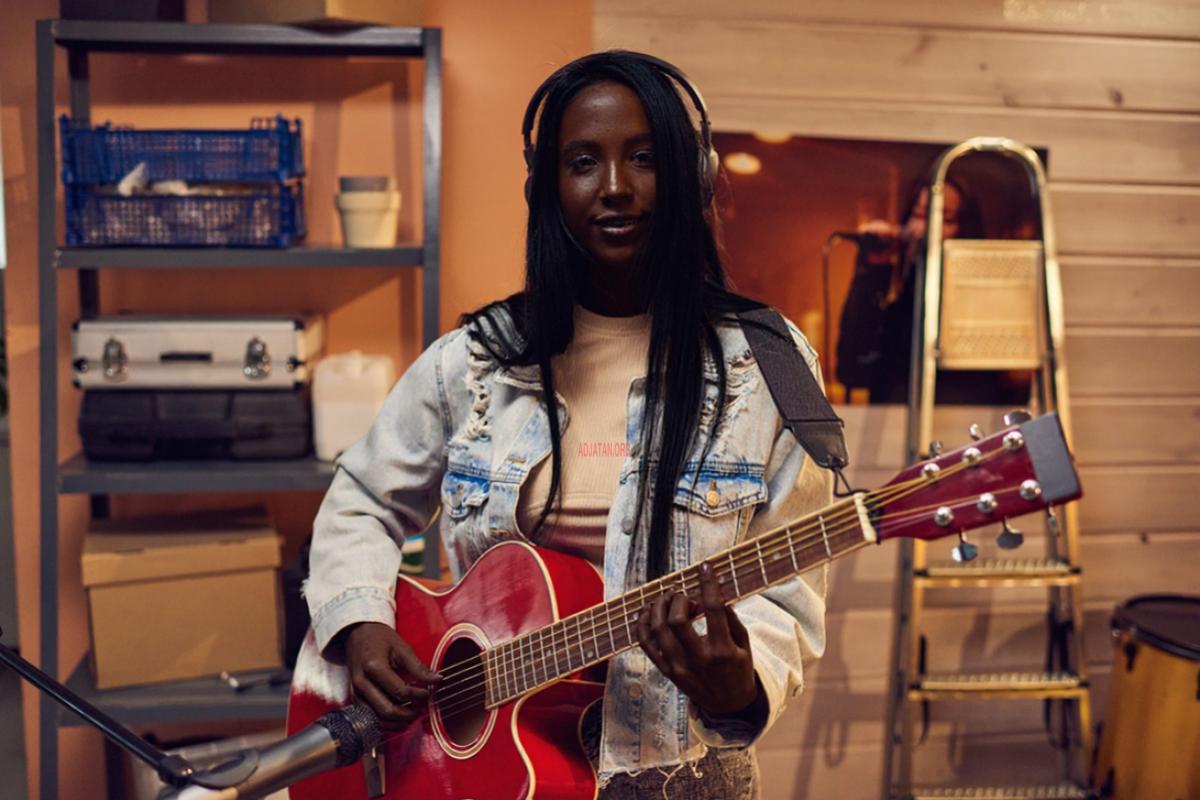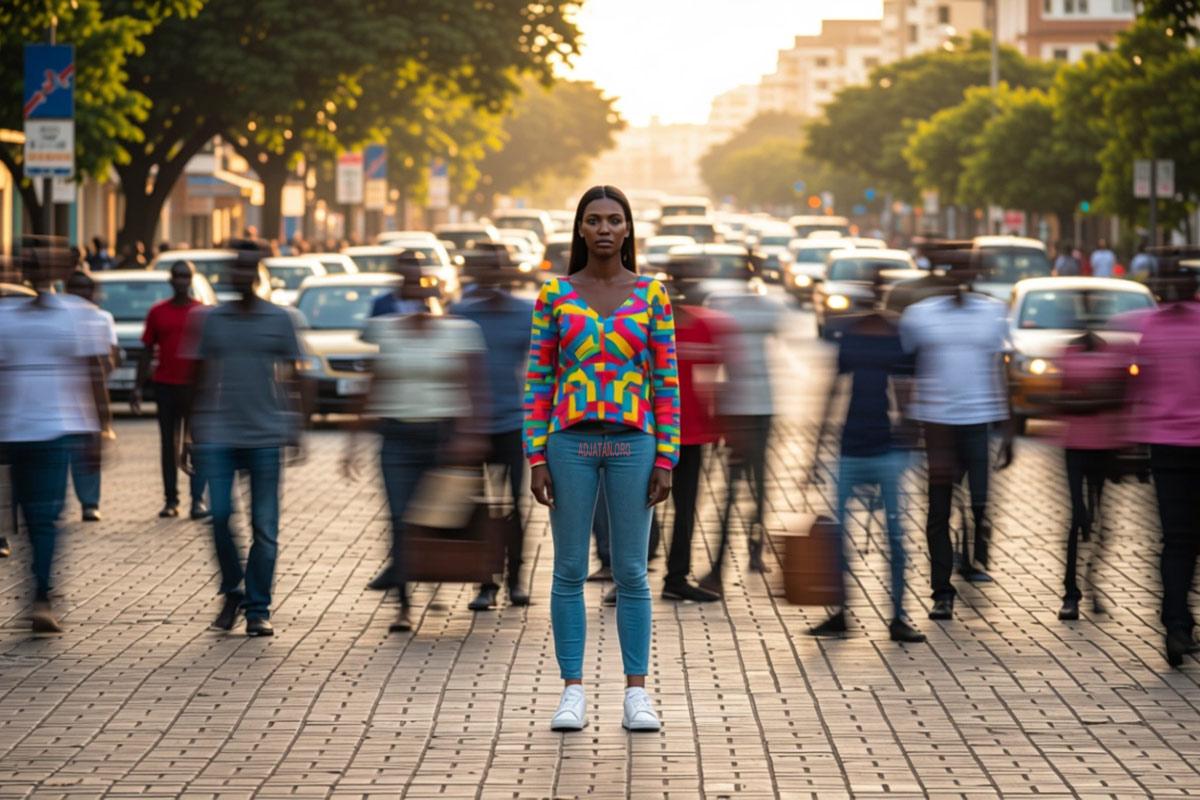
He left “just like that,” on the afternoon of April 4, 2025, in Bamako. Amadou Bagayoko, the legendary Malian guitarist and one half of the iconic duo Amadou & Mariam, passed away at the age of 70, following an illness. At the family home in Bamako, voices fell silent, tears were shed, and prayer beads accompanied his soul. Africa’s music scene is in mourning. So is the world. Because Amadou was not just a voice of Mali — he was a bridge between continents, genres, and hearts.
A Defining Encounter
It all began in 1976 at the Institute for the Young Blind in Bamako. Amadou was 21, Mariam Doumbia was 18. He played guitar in the school band; she was a singer. Both blind, they shared more than a disability: a deep love for music — from Bambara tradition to rock, blues, and reggae. It was there that their artistic and romantic bond took root. They married in 1980 and had three children, including Sam, future member of SMOD.
The Rise of a Unique Duo

Their style? Afro-blues-rock, as Amadou called it: a vibrant blend of traditional rhythms, saturated guitars, catchy melodies, and simple yet moving lyrics about life, poverty, love, and hope. In Mali, they quickly gained attention, toured across West Africa, and released cassette recordings.
It was in 1998 that they broke through in France with the single "Je pense à toi", their first real introduction to European audiences. The success was still modest, but their path was set.
Meeting Manu Chao: A Turning Point
In 2004, everything changed. They met Manu Chao, the globetrotting musician and former frontman of Mano Negra, known for his sound fusion. Together, they created Dimanche à Bamako, an album that would become a cultural milestone. Manu Chao didn’t just produce it — he infused it with his signature style: whispered vocals, echoing choruses, street samples, groovy rhythms. The album overflowed with life.
"Sundays in Bamako are wedding days"… a line that became an anthem. The album took off: over one million copies sold, a Victoire de la Musique in France, BBC Awards in the UK, and world tours. The duo went from African stages to European festivals, opening for Coldplay (2009) and U2 (2011), and even performed for Barack Obama in Oslo during his Nobel Peace Prize ceremony.
SMOD: The Legacy Lives On

Amadou and Mariam not only shared their art with the world — they passed it on to their son, Sam, founder of the group SMOD (an acronym for Sam, Mouzy, Ousco, Donsky). In 2010, the group released an album once again produced by Manu Chao. Blending hip-hop, folk, and Malian music, it was a fresh take — a new generation carrying forward a legacy of musical fusion.
Amadou’s Legacy
Amadou and Mariam were more than musicians — they were a philosophy. An openness to others. A way to transcend boundaries — of language, disability, or musical genre. Their art was accessible, luminous, deeply human.
Manu Chao’s influence was pivotal. He gave their sound an urban, global feel without ever compromising its Malian soul. The album Dimanche à Bamako is now a landmark in the history of world music.
And Now, Mariam?
“I’m alone now,” Mariam said in sorrow. After half a century of shared life — on stage and off — she finds herself without her partner in love, life, and song. Yet even as Amadou’s voice has fallen silent, Mariam’s remains. She is known to be strong, dignified, grounded in her music and her faith. Their recent performance at the closing ceremony of the Paris Paralympic Games — singing "Je suis venu te dire que je m’en vais" — now resonates with haunting poignancy.
Will Mariam carry on alone? Most likely. But her music will never be the same. It now carries the grief of a man, a duo, an era.
A Departure, an Eternal Memory
In Bamako, the mourning continues. Tributes pour in: Youssou N'Dour, Sidiki Diabaté, Fally Ipupa, Emmanuel Macron… All salute the man and the artist. Manu Chao, visibly moved, wrote: "We will always be together... with you wherever you go."
And it’s true. Amadou’s music will live on. In our hearts. On dance floors. At weddings. On radios across Africa and beyond. Every Sunday.
Amadou is gone. But Amadou is here.
Selected Discography of Amadou & Mariam
- Se Te Djon Ye – 1999
- Sou Ni Tilé – 1999 (first internationally distributed album, includes Je pense à toi)
- Tje Ni Mousso – 2000
- Wati – 2002
- Dimanche à Bamako – 2004 (produced by Manu Chao, breakout international album)
- Welcome to Mali – 2008 (includes “Sabali” featuring Damon Albarn)
- Folila – 2012 (featuring Santigold, TV on the Radio, and others)
- La Confusion – 2017
- La Vie est Belle – Best of 1998–2024 – 2024 (retrospective compilation)





